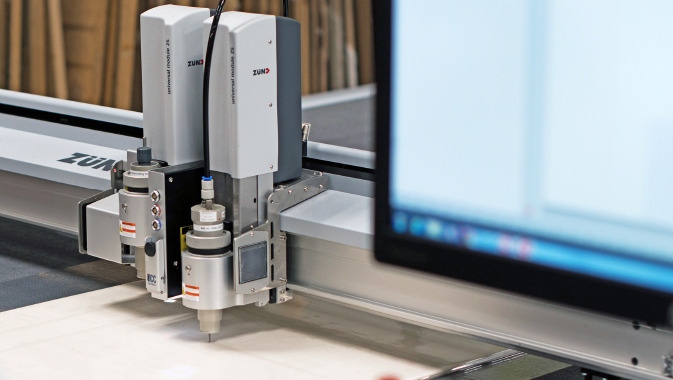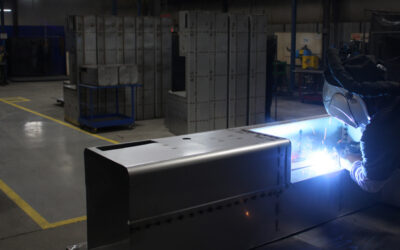Since 1950, Precision Gasket Co. (PGC) has been partnering with original equipment manufacturers around the world and across industries to help them get their products to market faster.
~
The 68-year-old manufacturer has been owned by its current CEOs, Susan Cary-Hanson and Steve Hanson, for the last 22 years. In fact, Steve Hanson, who joined the firm since 1984 as its sixth employee, has watched the family-owned business grow from a small team to the 85 employees it has today.
Over the last few years, its growth has accelerated even more.
The Edina, Minnesota-based business provides precision components that perform important sealing, protection, damping and stabilizing functions for everything from medical devices to military vehicles, to lawn mowers. Its major markets served include aerospace and defense, industrial, medical, electronics, and construction.
“We are a partner in precision with our customers,” Sales & Marketing Manager Amber Fennell says. “We help them find a solution to their problems.”
Whether gaskets, seals, O-rings, adhesives, or other custom parts, everything manufactured at PGC’s 60,000 square-foot facility is done according to its customers’ specifications. The AS9100D and ISO 9001:2015 certified and ITAR-registered (International Traffic in Arms Regulations) company has the capabilities to manufacture high-performance prototypes that withstand thermal, chemical and mechanical stress, and can also do rapid prototyping for a customer’s project in just a few hours with its in-house 3D printing capabilities. PGC has a new in-house engineering development lab to assist and support in these solutions. Every single one of PGC’s products is custom-made.
“It’s their print, it’s their product, and the parts that we make are just a piece of it. But it plays a very important part in the function of a customer’s ultimate end product,” Fennell adds.
While PGC has earned a sterling reputation over the decades and across the globe as a trusted manufacturing partner, its recent growth spurt is due to a concerted team effort.
“What has helped PGC grow over time is being focused on the customer, quality parts, and building a relationship with the customer so that they know they can rely on us to do what they need. We’ve had a lot of organic growth, but more recently, about three years ago, we took a look internally. It was at that point that we re-branded and became a new company within an old company,” Fennell explains.
Taking a step back
One of the measures PGC took during its re-brand was enlisting the help of a third-party organization to gain clarity while analyzing certain aspects of the business: what PGC expected from its internal customers, and what its external customers expected of it.
“We needed to take a step back to realize that we can’t be everything to everybody, and the branding helped us with our internal alignment to meet our strategy,” says Vice President John Bower.
PGC obtained two important pieces of feedback: one from a customer and one from a supplier. One customer told PGC about a gap that exists in its particular industry regarding material selection. The customer was having difficulty selecting the material it needed to provide a seal or a gasket, for instance for a sound or vibration application, fastening, or even electromagnetic interference. However, this is where PGC excels.
By helping manufacturers find solutions in material selection much quicker and more cost effectively, PGC can enable these customers to get their product out to market faster. PGC was able to use its discovery tools to find the right materials, source them through its extended supply chain, and put this client in a position to release its end product in a timely manner.
“We also put together a very specific program, not only to recruit who we consider our top application engineers, but also retain them and then give them the tools needed to solve the complex problems of our customers,” says Bower.
PGC also obtained feedback from a supplier who handles die-cutting technology. The supplier revealed that it had looked at its preferred converter network, which at one point was up to 100, but based on certain requirements it had narrowed it down to just under 60 preferred converters in the North American market. PGC is among them.
“Their team told us that we are very different in that we have internal engineering resources. We are able to look at materials and quickly diagnose what those problems are, find the right material, convert it in a very short amount of lead time, and get that product out to the customer as quickly as possible,” Bower tells us.
PGC has three main company values: to provide progressive solutions, to execute with discipline, and to be tenacious.
“We are proud of our values and hold them very near and dear to our heart. We are set apart because we become a part of our customer’s team and not just another supplier. We really care about their needs, their requirements, the specifics that they need for their parts, because we understand that there is a bigger picture. Whether in a medical application or military defense application, these parts save the lives of others. It is bigger than just us,” Fennell states.
The ideal team player
By focusing on its core strengths, the management at PGC was able to continue to propel the business forward during and beyond its recent re-branding process as it has reached new levels of growth. Of course, in order to continue to solve its customers’ complex problems, it is essential to hire and retain the right people for the task.
“In the last year or so, our organization’s executive and leadership team read a book called The Ideal Team Player by Patrick Lencioni. In the book, they talk about being humble, hungry, and people-smart. Those are three qualities that we look for in the people we recruit,” says Fennell.
“Another quality that our owners are proud of is being lifelong learners, and they challenge every employee within PGC to continue to learn. Whether that is through training, books, or another process within our organization, to always be knowledge-hungry, to look for other ways to do things, and to be ready to continue that learning process is really important to PGC,” she continues.
A bottom-up approach
PGC’s future plans are to continue to grow and invest in its processes, its equipment, and its people. In the last year it has purchased two new pieces of manufacturing equipment, and it is constantly looking for ways to provide new technology to remove its staff’s roadblocks so they can continue to provide innovative solutions to customers as seamlessly as possible.
“PGC is very unique in the way we take the bottom-up approach; we prioritize the importance of our frontline employees. They are the ones doing the work and seeing it every day, so we take input from them directly rather than waiting for the executive team to make the decisions. The people that we have here are the fabric of everything that we do, and are the ones who will help us grow. The leadership team understands that,” says Fennell.
PGC’s unique approach to business, which may seem counterintuitive to some, is just what has helped it to flourish for almost 70 years and continue to reach new heights. Taking a step back to consider its customer-partners’ needs as well as to listen to what its employees on the floor are saying has helped the business to grow in ways that it otherwise wouldn’t have.
This mindset also leads into the company’s philanthropic outlook. PGC strives to be a community steward, donating to non-profits such as St. Jude Children’s Research Hospital and working with robotics programs at local high schools through Project Lead the Way – a non-profit that develops STEM curricula for elementary and high school students in the U.S.
PGC believes it is important to look to the next generation of engineering and manufacturing professionals as baby boomers within the company, and the industry in general, prepare to retire. “We understand that it’s not all about us, and we are really focused on education. It is very important for us that the next generation knows that manufacturing is an amazing industry,” Fennell concludes.
To learn more about PGC and how it can help your manufacturing business, please visit pgc-solutions.com.













